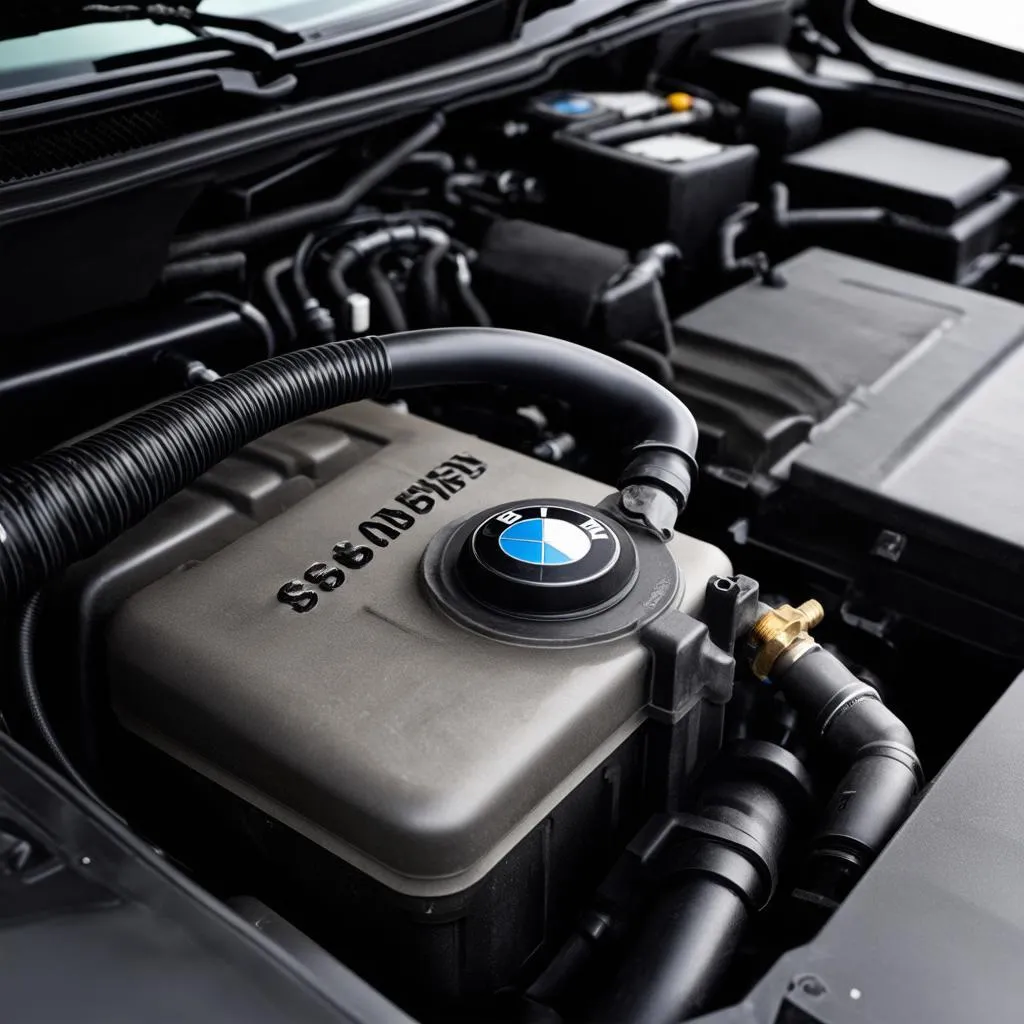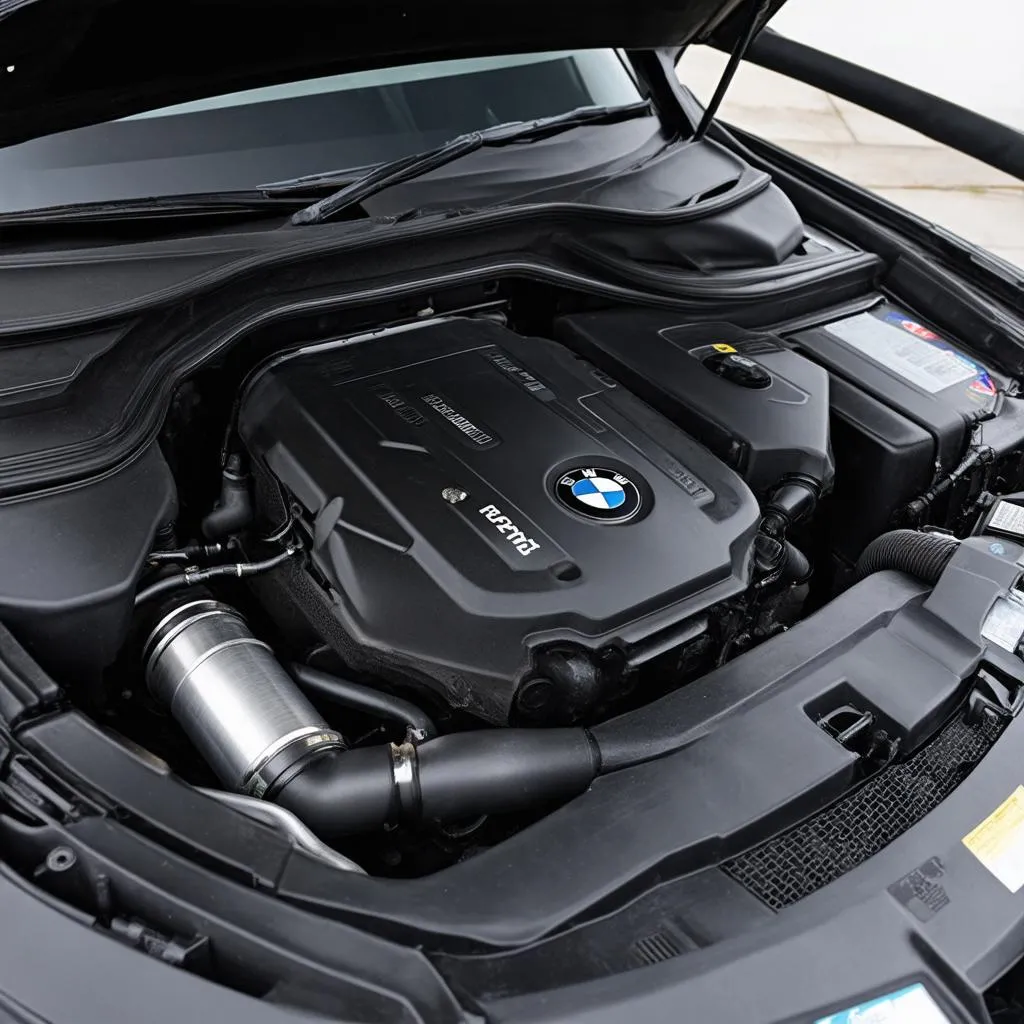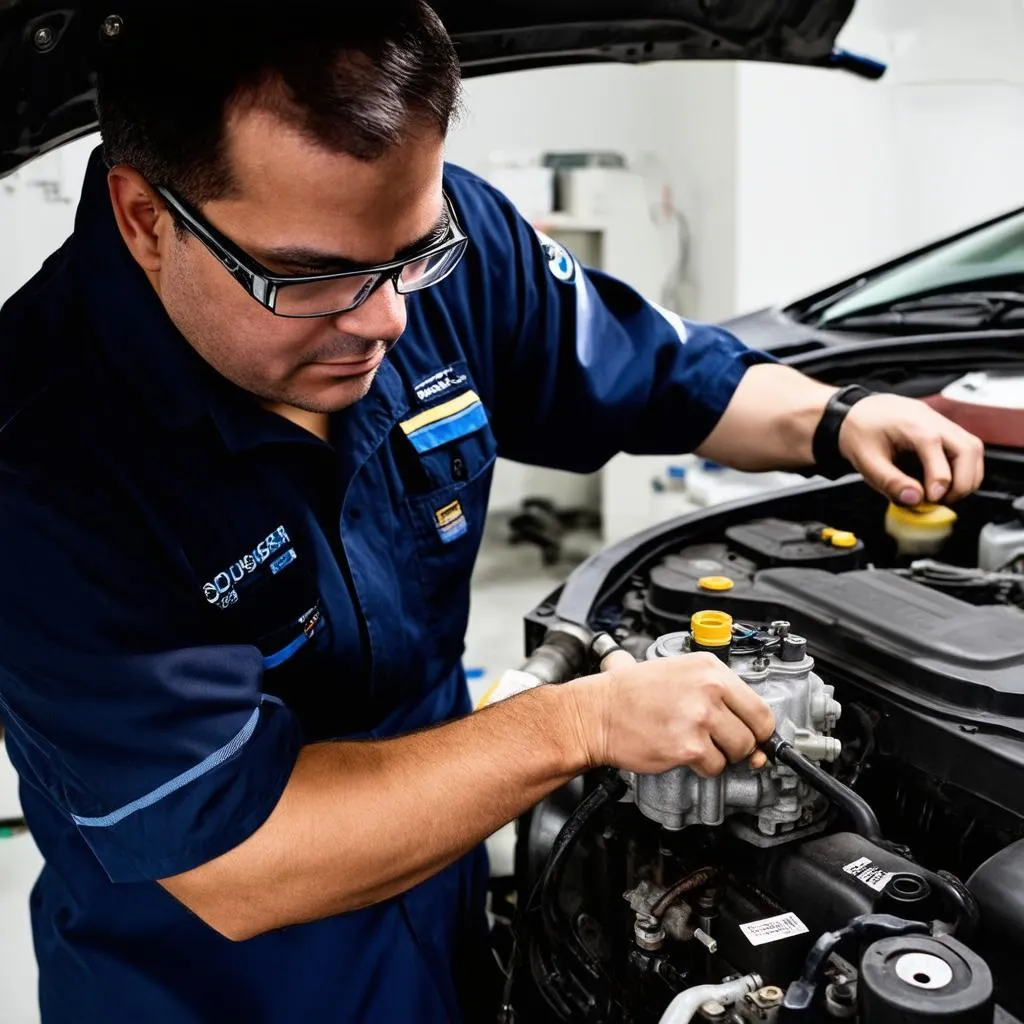BMW Secondary Air Injection Pump: Everything You Need to Know
Have you ever heard a strange hissing sound coming from your BMW engine? Or maybe you’ve noticed a decrease in performance or an increase in fuel consumption? These could be signs of a failing secondary air injection pump, a crucial component in modern BMW engines that helps to reduce emissions.
What is a BMW Secondary Air Injection Pump?
The Bmw Secondary Air Injection Pump is a vital part of the emissions control system. It’s responsible for injecting fresh air into the exhaust manifold during the engine’s cold start phase. This air helps to oxidize harmful gases like hydrocarbons and carbon monoxide, converting them into less harmful substances. This process is known as “secondary air injection” and plays a crucial role in meeting emissions standards.
Why is the Secondary Air Injection Pump Important?
Think of it this way: the secondary air injection pump is like a helping hand for your engine during its initial startup. It ensures a cleaner and more efficient combustion process, ultimately leading to better overall performance and fuel economy.
Common Symptoms of a Failing Secondary Air Injection Pump
As mentioned earlier, a failing secondary air injection pump can manifest in a variety of ways. Here are some of the most common symptoms:
- Hissing sound: You might hear a hissing sound coming from the engine compartment, especially during startup.
- Check engine light: The check engine light may illuminate on your dashboard, accompanied by a corresponding error code.
- Reduced engine performance: You might experience a decrease in acceleration or a sluggish response from the engine.
- Increased fuel consumption: Your fuel efficiency could suffer due to incomplete combustion caused by a malfunctioning pump.
- Exhaust smoke: You may notice an increase in exhaust smoke, especially during cold starts.
What to do if You Suspect a Problem with Your Secondary Air Injection Pump
If you’re experiencing any of the symptoms mentioned above, it’s crucial to address the issue promptly. Ignoring a malfunctioning secondary air injection pump could lead to more serious problems down the road.
First, it’s important to diagnose the problem accurately. This can be done using a diagnostic scanner, which can read error codes stored in the engine control unit. This will help identify the specific issue with the secondary air injection pump.
Once the problem is diagnosed, you can decide on the appropriate course of action. You can either repair or replace the faulty secondary air injection pump. Repairing a damaged pump may be more cost-effective, but replacing it with a new one often ensures long-term reliability.
Can I Replace the Secondary Air Injection Pump Myself?
While it is possible to replace the secondary air injection pump yourself, it’s often a challenging task that requires a significant amount of expertise and specialized tools. If you’re not comfortable working on your vehicle’s electrical system, it’s best to seek professional help from a qualified mechanic.
Some Frequently Asked Questions
1. How often do I need to replace the secondary air injection pump?
The lifespan of a secondary air injection pump can vary depending on factors such as driving conditions, maintenance history, and the quality of the pump itself. However, most pumps are designed to last for the life of the vehicle. Regular maintenance and proper care can help to extend the pump’s life.
2. How much does it cost to replace a secondary air injection pump?
The cost of replacing a secondary air injection pump can vary widely depending on the specific model and year of your BMW. Parts can range from a few hundred dollars to over a thousand dollars, with labor costs adding additional expense. It’s always a good idea to get quotes from multiple repair shops before making a decision.
3. Is there anything I can do to prevent my secondary air injection pump from failing?
While there is no foolproof way to prevent your secondary air injection pump from failing, there are some things you can do to help extend its life:
- Regular maintenance: Be sure to follow your BMW’s recommended maintenance schedule, including oil changes, air filter replacements, and regular inspections.
- Proper fuel quality: Use high-quality fuel to ensure that the pump is not subjected to excessive wear and tear.
- Avoid harsh driving conditions: Excessive heat and vibrations can stress the pump, so try to avoid prolonged driving at high speeds or in extreme temperatures.
Final Thoughts:
The BMW secondary air injection pump is a critical component of your vehicle’s emissions control system. While it may not be something you think about often, it plays a vital role in keeping your engine running efficiently and meeting environmental regulations. By understanding the signs of a failing pump and addressing issues promptly, you can ensure that your BMW continues to run smoothly for years to come.
If you’re experiencing any issues with your BMW’s secondary air injection pump or other electrical system problems, don’t hesitate to contact us. We have a team of expert mechanics available 24/7 to assist you with diagnostics, repairs, and any other questions you may have. You can reach us on WhatsApp at +84767531508.
 bmw-secondary-air-injection-pump
bmw-secondary-air-injection-pump
 bmw-engine-parts
bmw-engine-parts
 bmw-mechanic-repair
bmw-mechanic-repair
This is just a starting point for a comprehensive article about BMW secondary air injection pumps. You can expand on this by adding more details about specific models, troubleshooting techniques, and common issues. Remember to keep your content SEO-friendly and engaging for your audience!
